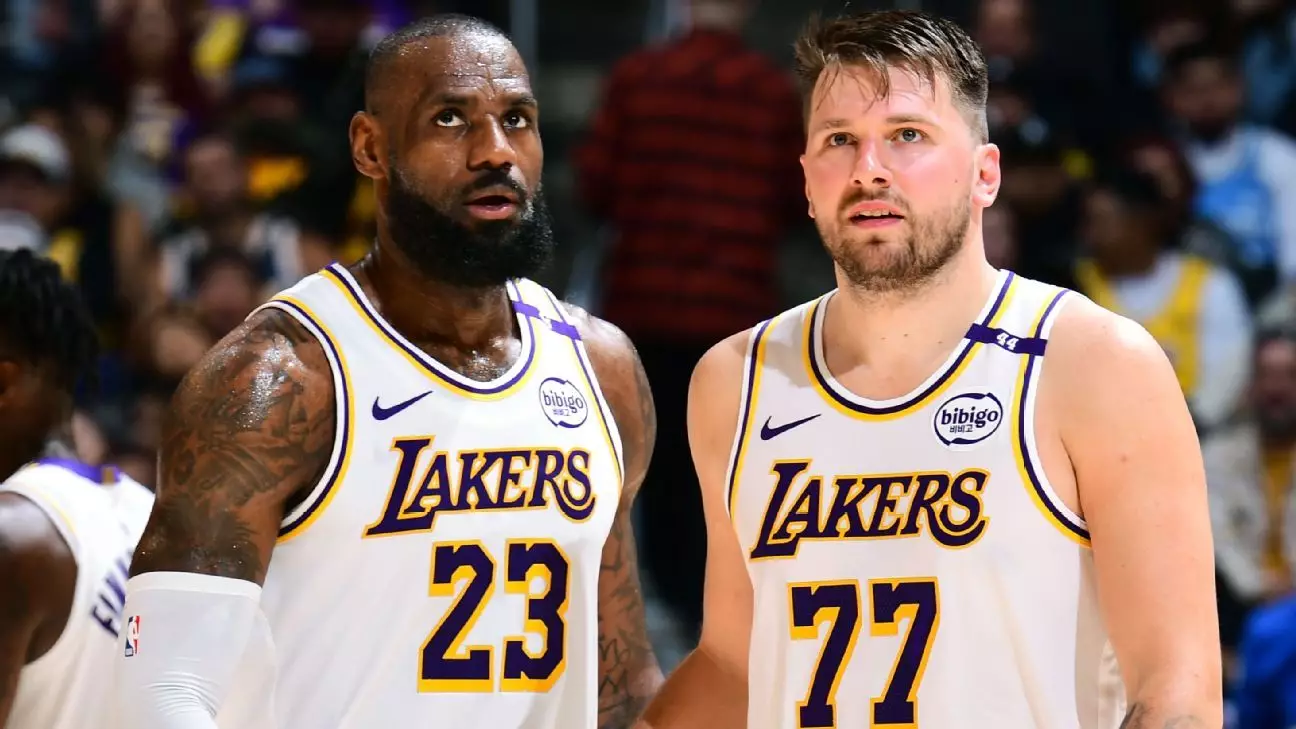In the high-stakes world of professional basketball, athletes often project an aura of invincibility, yet behind that façade lies a complex web of mentorship, respect, and legacy-building. The recent interactions between LeBron James and Luka Doncic exemplify this nuanced dynamic. While the headlines focus on contracts and team trades, the underlying narrative is about generational influence and the quiet consolidation of leadership roles. James, a seasoned veteran, extends his mentorship to Doncic, a rising superstar, not merely through words but through unspoken gestures of support and recognition. This subtle mentorship hints at a broader NBA culture—one where experienced stars shape the trajectory of younger players, ensuring the league’s continual evolution with a foundation of shared respect and competitive brotherhood.
LeBron’s congratulatory call to Doncic, just after signing a lucrative extension, exemplifies a transfer of wisdom from one generation to another. It’s more than just friendly congratulations; it’s a tacit acknowledgment of Doncic’s rising star status and a signal of the torch being passed, albeit with the understanding that leadership in the NBA isn’t about mandates but about influence. The absence of James at the Lakers’ news conference and their group trip is telling—it underscores the understated, yet impactful, role that veterans like James play in shaping locker room culture and guiding the next wave of talent.
The Complexity of Commitment and Future Uncertainty
James’s commitment to the Lakers might seem unwavering on the surface, but beneath that lies an undercurrent of uncertainty about his future—a reflection of the league’s ever-changing landscape. His decision to opt into his final year and the subsequent statements by his agent highlight a player who values winning but also recognizes the finite window of opportunity to do so. LeBron’s words about needing to “evaluate what’s best” reveal a man acutely aware of his legacy, yet also pragmatic about his aging body and the league’s shifting tides.
This internal conflict—balancing the desire to retire as a Lakers legend against the realities of competitive longevity—is a pivotal aspect of modern NBA careers. It poses questions not just for James, but for the Lakers organization as well. Are they truly focused on building a championship contender now, or are they content to relegate James to a mentor role while planning for a distant future? The seemingly cordial interactions between Pelinka and James’s camp suggest a delicate dance; respect and communication are maintained, but the ultimate decisions about James’s future remain shrouded in personal preference and timing.
The broader implication is that superstar players like James are not merely assets for their teams—they are custodians of the league’s identity. Their choices influence team dynamics, franchise planning, and even tipping points of competitiveness. When these veterans articulate their needs and ambitions, they reshape organizational strategies, often in ways that are not immediately visible but profoundly impactful in the long run.
Legacy Building in a League of Constant Reinvention
While the public focus may be on contractual numbers and on-court achievements, the real story is about legacy—how stars like James and Doncic craft narratives that extend beyond stats and highlights. James’s long-standing presence in the NBA has already etched an indelible mark, but his interactions with Doncic suggest a desire to ensure that his influence endures through mentorship. For Doncic, this mentorship is a double-edged sword—an honor, but also a burden to live up to the expectations set by NBA legends.
In the broader context, the league is witnessing a transitional era. Doncic embodies the future, but he is being molded by the seasoned veterans who have already set the standard. The quiet interactions, like calls and gestures of support, serve as rites of passage—establishing intangible bonds that influence team chemistry and individual growth. While contracts, trades, and stats garner headlines, it is these subtle exchanges that truly define the league’s evolution.
This ongoing mentorship underscores a core truth about professional sports: success is rooted not just in talent, but in relationships, respect, and shared vision. As players like James approach the twilight of their careers, their legacy is increasingly measured by the mentorship they offer to the next generation. For Doncic, upleveling his game isn’t just about individual skill; it’s about understanding and honoring this unspoken code of leadership that shapes NBA history.
The Power of Respect and Uncertain Future—A New Dynasty in the Making?
The current narrative also hints at the broader theme of uncertainty shadowing even the most celebrated careers. James’s future plans remain fluid, and that ambiguity injects a layer of suspense into the Lakers’ plans and the league’s landscape. As a player nearing 40, his choices will influence not only team strategy but also the identities of franchises that are still trying to find their footing.
For Doncic, having a figure like James reach out signifies more than just personal encouragement—it exemplifies the passing of a torch in a league driven by stars’ influence. It signals that while Legacies are built on accomplishments, they are sustained through genuine respect and mentorship. The NBA’s future hinges on this very dynamic—how young stars absorb lessons from elders and how those veterans choose to pass on their wisdom.
In essence, the league is a complex ecosystem in which individual narratives intertwine with organizational strategies. The interactions between LeBron James and Luka Doncic symbolize a silent yet potent exchange—a testament to the power of leadership, the importance of legacy, and the ongoing quest for excellence in an arena forever in motion.


Leave a Reply